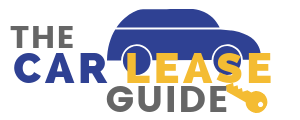When you leased a car and purchased car insurance for it, you probably thought that it included all of the insurance needs for the car. However, this isn’t the case. Gap insurance for your car is extremely necessary. It’s all the more an important requirement to purchase gap insurance for leased cars. Your gap insurance will actually provide protection for the car that you have leased especially in the first few years of the lease. If a mishap were to really happen, then the gap insurance for leased cars will payout the difference between the actual cash value of the car and the outstanding balance that is there on your leased car at that moment in time.
It has often been assumed by car lessees that if their car has been completely totalled, then the insurance company will pay the purchase amount of the car or at least the remaining part of the lease that is owed. However, that is really not the case. For this reason, many insurance companies will offer a special add on gap insurance feature.
The gap insurance that you purchase may be subject to certain rules or exclusions.
- The limit of the loss for the car shouldn’t exceed $50,000.
- The settlement that would be made will not cover any penalties or such charges.
- The total loan/payoff amount on the vehicle should be $100,000 or less than this amount.
- There shouldn’t be any balloon payment due at the end of the term.
Do You Need Gap Insurance?
Remember that the moment you drive off with your leased car from the showroom, the car has started depreciating. Typically, it will depreciate 20% the moment you drive off with it. Now if the car is stolen or if it’s totalled in an accident, the insurance company will pay the actual cash value. However, the outstanding balance will still be on the payoff amount. Here, the gap insurance will pitch in and save your day, or else you will be left footing a bill that could be quite substantial.
If any of the following points apply to you, then you would surely need gap insurance.
- At the time of purchase, did you pay less than 20% as down payment for the car?
- Are you getting the car financed for 72 months or more?
- Have you leased a high-end car or a very luxurious car that can depreciate rapidly?
- Are you leasing the car that you have bought?
If you have answered positively for any of the above questions, then you will surely need gap insurance for your leased car.
Who Offers Gap Insurance?
Quite plain and simple, there are many insurance companies that offer gap insurance for leased cars, while many others don’t. Check with an insurance agent or the showroom where you bought the car.
Be sure to read the terms and conditions as there can be limits for payment or mileage for gap insurance. Gap insurance for leased cars will also last for the entire term of the lease that you have taken unless you choose to cancel it.
An Example of a Case Where Gap Insurance is Needed
If you have leased a car at a selling price of $20,000 and after 2 years the car is totalled, the insurance company may pay for the actual cash value of the car. Let’s say that the actual value as per the insurance company comes to $14,000. However, the payoff amount is $16,000 in the books of the finance company. The difference of $2,000 would be paid by the gap insurance.

great post as usual!